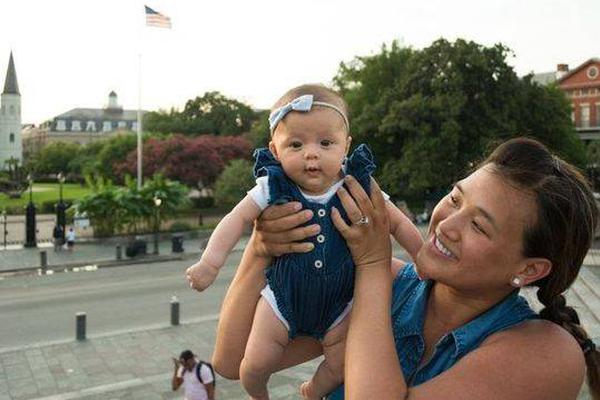Even a limited win for digital privacy can The Exotic Time Machine (1998)feel significant, especially when Clearview AI is on the losing end.
Clearview AI, the facial-recognition company which made headlines in January of 2020 for secretly scraping billions of photos from social media sites, will be prohibited from selling access to its tools under the terms of a settlement filed Monday in federal court. Notably, the settlement only applies to most private companies, and does not block sales to law enforcement (except in the state of Illinois).
The settlement is the result of a lawsuit in which the ACLU was the plaintiff, with the organization noting that the suit was filed on behalf of "vulnerable communities uniquely harmed by face recognition surveillance" such as "survivors of domestic violence and sexual assault, undocumented immigrants, [and] current and former sex workers[.]"
At issue is the 2008 Illinois Biometric Information Privacy Act (BIPA), which explicitly precludes private companies from acquiring state residents' "biometric information" without prior notification and consent. In scraping the internet for people's photos, which the company then used to power its database, Clearview AI is alleged to have violated this law.
Clearview AI, for its part, claimed in May of 2020 that it would stop working with private companies. Previously, businesses like Coinbase confirmed they had used the tech in some capacity.
Monday's settlement, which still needs to be approved by the court, was hailed by organizations advocating on behalf of people's digital privacy. The fight, however, is far from over. Albert Fox Cahn, the executive director of the Surveillance Technology Oversight Project, made it clear in a statement that Monday's limited ban is only the first step of many.
"This is a milestone for civil rights, and the ACLU deserves our thanks for once again safeguarding our Constitution," wrote Cahn. "But banning Clearview AI in one state is not enough; we need a national ban."
SEE ALSO: People are fighting algorithms for a more just and equitable future. You can, too.Indeed, while exploiting billions of surreptitiously copied photos for profit just got marginally more difficult, without federal privacy protections, Clearview remains free to sell facial-recognition technology to police departments across most of the country — organizations which have a demonstrated history of misusing such tools.
But until that time, we'll take Monday's win — however small.
Topics Privacy
(Editor: {typename type="name"/})
 NYT Connections hints and answers for May 18: Tips to solve 'Connections' #707.
NYT Connections hints and answers for May 18: Tips to solve 'Connections' #707.
 What happens when you're banned from dating apps
What happens when you're banned from dating apps
 Best vacuum mop combo deal: Save $140 on the Tineco Floor One S5
Best vacuum mop combo deal: Save $140 on the Tineco Floor One S5
 Best coffee machine deal: Save 25% on Philips Series 3300 espresso machine
Best coffee machine deal: Save 25% on Philips Series 3300 espresso machine
 The fat bears are already extremely fat
The fat bears are already extremely fat
How to Settle Down with Dystopia
 Bread and Circuses
...[Details]
Bread and Circuses
...[Details]
Can ChatGPT pass the Turing Test? What the research says.
 Artificial intelligence chatbots like ChatGPT are getting a whole lot smarter, a whole lot more natu
...[Details]
Artificial intelligence chatbots like ChatGPT are getting a whole lot smarter, a whole lot more natu
...[Details]
NYT Connections Sports Edition hints and answers for May 9: Tips to solve Connections #228
 Connections: Sports Editionis a new version of the popular New York Times word game that seeks to te
...[Details]
Connections: Sports Editionis a new version of the popular New York Times word game that seeks to te
...[Details]
Best robot vacuum deal: Save $600 on Dreame X40 Ultra
 SAVE $600:As of May 9, the Dreame X40 Ultra Robotic Vacuum with Mop is on sale for $899.99 at Amazon
...[Details]
SAVE $600:As of May 9, the Dreame X40 Ultra Robotic Vacuum with Mop is on sale for $899.99 at Amazon
...[Details]
Stablecoin bill advances in U.S. Senate as Trump critics call to end his crypto dealings
 The crypto industry is celebrating this week as a controversial stablecoin bill dubbed the GENIUS Ac
...[Details]
The crypto industry is celebrating this week as a controversial stablecoin bill dubbed the GENIUS Ac
...[Details]
The Vornado 660 fan is the next best thing to AC
 Living in Boston, I've adjusted to the sweltering summers. The best way to survive is a good AC unit
...[Details]
Living in Boston, I've adjusted to the sweltering summers. The best way to survive is a good AC unit
...[Details]
Google coughs up $1.4 billion to Texas over privacy lawsuit
 Google will pay Texas $1.4 billion to settle a pair of lawsuits alleging that the company violated p
...[Details]
Google will pay Texas $1.4 billion to settle a pair of lawsuits alleging that the company violated p
...[Details]
Today's Hurdle hints and answers for May 11, 2025
 If you like playing daily word games like Wordle, then Hurdle is a great game to add to your routine
...[Details]
If you like playing daily word games like Wordle, then Hurdle is a great game to add to your routine
...[Details]
Best headphones deal: Save up to 51% on Beats at Amazon
 SAVE UP TO 51%:As of May 12, save up to 51% on Beats earbuds and headphones. Get the Beats Studio Pr
...[Details]
SAVE UP TO 51%:As of May 12, save up to 51% on Beats earbuds and headphones. Get the Beats Studio Pr
...[Details]
100 Americans vs. 100 Brits: TikTok’s latest debate is uniting America
 The question plaguing everyone's mind on TikTok right now is one of patriotism, grit, and an underst
...[Details]
The question plaguing everyone's mind on TikTok right now is one of patriotism, grit, and an underst
...[Details]
接受PR>=1、BR>=1,流量相当,内容相关类链接。